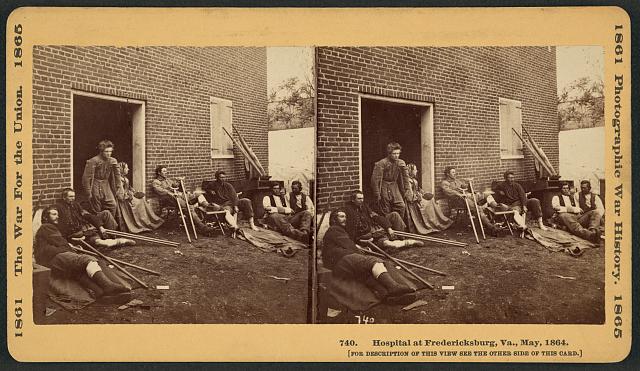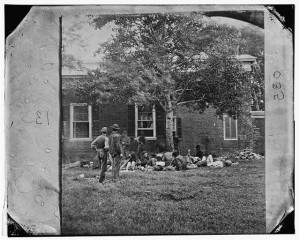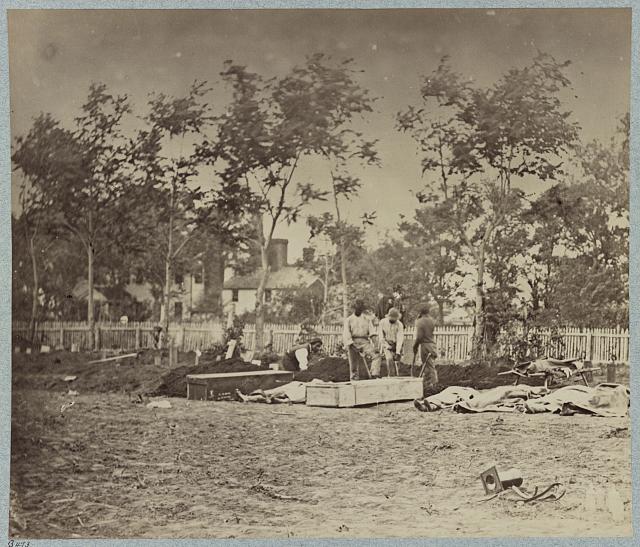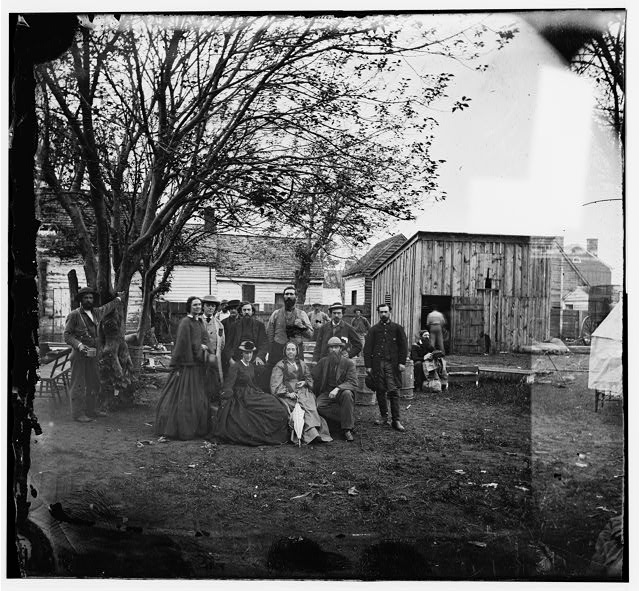One of our local publications reprinted a report from the Albany Argus. From a Seneca County, New York newspaper in May 1864:
The Wounded at Fredericksburg.
HEART-RENDING SCENES.
From a gentleman who arivee [sic] in this city yesterday morning, direct from Fredericksburg, we learn some interesting particulars with reference to the scenes that are now to be witnessed in that city and vicinity. Our informant left Fredericksburg on Tuesday morning at eleven o’clock in company with a member of the Army of [?] Medical Corps.
They made the journey to Washington in an ambulance, driving all the way at a rapid rate for fear of being intercepted by guerrillas, who often harass travelers on the route. He states that on Monday, Moseby’s men were within four miles of Alexandria, where they captured ten or twelve sutler’s wagons, containing a quantity of medical stores.
The scenes in and about Fredericksburg baffled all attempt at description. The wounded, the dying and the dead were to be found everywhere and in every direction. Every house, barn, or other building that could afford shelter was occupied with the suffering wounded. The streets and alleys were also filled with them, while outside of the city acres of the fields were covered with the wounded and dying. The picture was the most heart rending that it was possible to behold. Thousands and tens of thousands of men lying about in heaps in the burning sun, bleeding to death for lack of medical attention, or famishing for want of nourishment and care. – Our informant says that their shrieks and groans are still ringing in his ears. Thousands were crying for a cup of cold water, and many were dying from the heat of the sun. At the time he left, the number of wounded in the city of Fredericksburg was estimated at 40,000. Quite a proportion of them were rebels, who lay indiscriminately mixed in among the Union men. The men who but a few hours before had met in deadly combat, now lay peacefully side by side. With them the Virginia Campaign was ended. Though fighting under different flags, they had been borne off the field together, and together many of them were waiting the approach of the messenger of death.
A Surgeon with whom he conversed, informed him that a large proportion of the wounds were breast wounds – the ball taking effect in the breast, neck or head. – Great numbers of the wounded were being constantly brought in – a detachment of three or four thousand men from the ambulance corps being engaged in that business. Some were brought in on cars, some on wagons, and some hobbled in on foot.
The impression among the suffering soldiers was that the engagements thus far had been drawn battles, but they felt great confidence in the result of the campaign. The soldiers were sure that Grant and his Generals were competent to lead the army on to victory, and to capture Richmond. – Among all the suffering to be witnessed, the patience exhibited was wonderful, and none of them seemed to regret that they had joined the Union Army. – Argus.


![Fredericksburg, Virginia. Burial of Federal dead (by Timothy H. O'Sullivan, 1864 May [19 or 20]; LOC: LC-DIG-cwpb-01840)](https://www.bluegrayreview.com/wp-content/uploads/2014/05/01840r-278x300.jpg)


